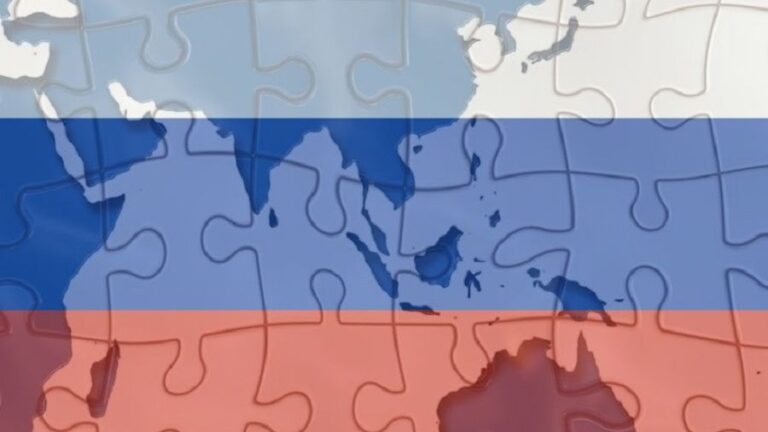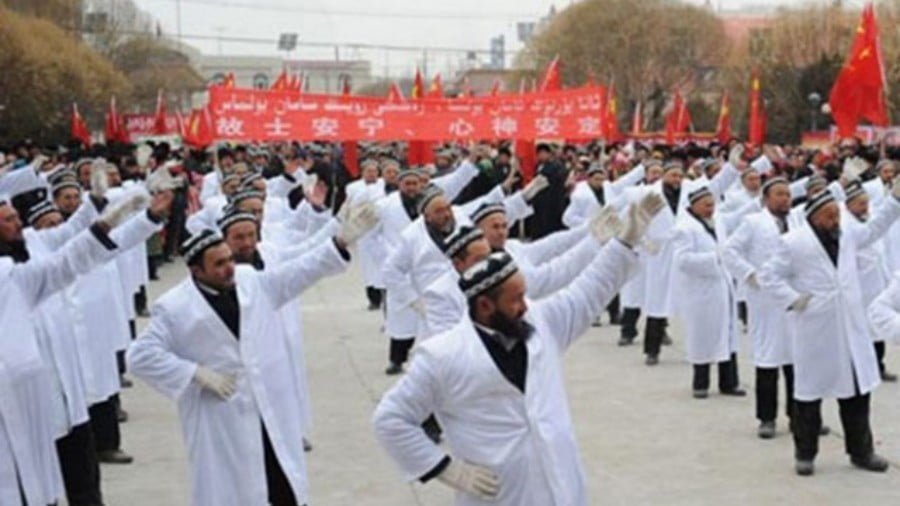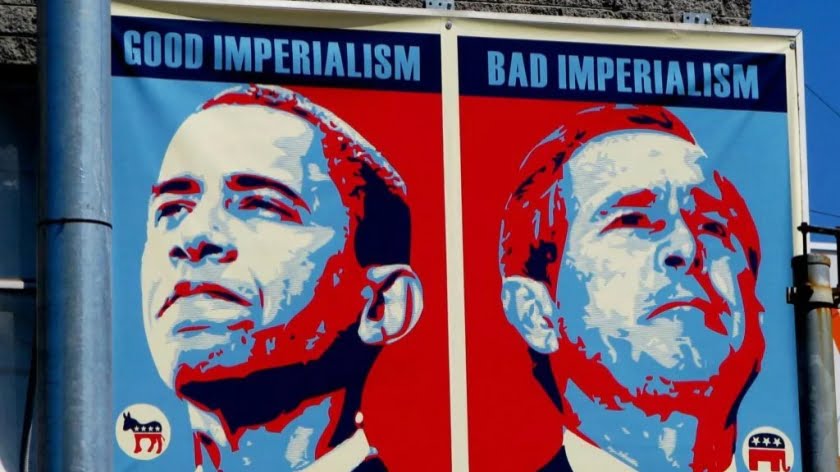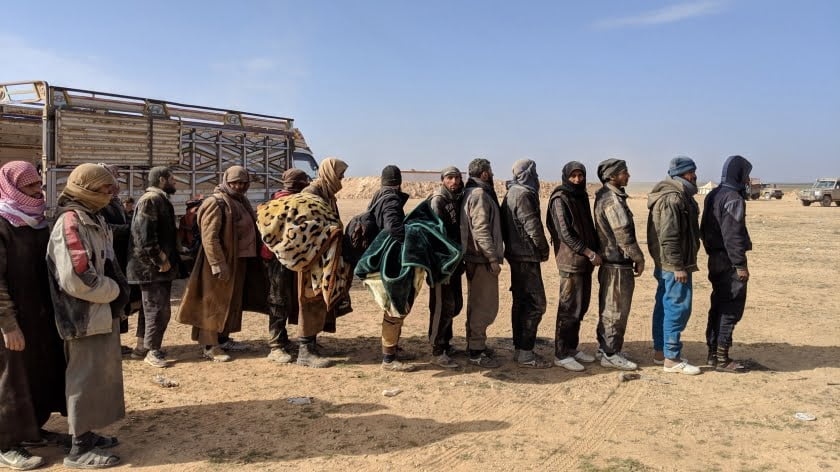South Korea and the US Leaks Scandal
Several Pentagon and CIA documents relating to the Ukraine crisis surfaced on the Internet in early April. If the contents of the revealed documents are accurate, we are currently seeing the biggest leak of private American records since Edward Snowden’s 2013 exposures.
We are, however, interested in the Korean aspect of the controversy because a number of documents revealed that Washington appears to be using Signals intelligence (SIGINT) to snoop on some of its closest friends, including the ROK.
Keep in mind that since the beginning of the Special Military Operation, the U.S. and NATO have applied constant pressure to the Korean government to supply Ukraine with weapons but South Korea has upheld the principle that it does not provide lethal weapons to belligerent countries.
According to the New York Times, Seoul stressed that the US military should be the final consumer and that the weapons should not be resold or transferred after reports emerged in late 2022 that South Korea had agreed to sell artillery shells to aid the United States replenish their stockpiles. President Yoon Suk-yeol’s advisers were still worried that the USA would redirect them to Ukraine.
The New York Times reports on a conversation between former President’s secretary for foreign affairs, Lee Moon-hee, and Former National Security Adviser Kim Sung-han. Lee claimed that the administration was troubled by fears that President Biden might speak with Yoon on the phone directly to address the situation, disregarding the ROK policy of not supplying lethal weaponry to nations at war. Additionally, the government was mired in concerns that the US would not be the end user if South Korea were to comply with a US request for ammunition.
According to Lee, “South Korea was not prepared to have a call between the heads of state without having a clear position on the issue, adding that South Korea could not violate its policy against supplying lethal aid, so officially changing the policy would be the only option.” Kim was worried that the public might believe that South Korea’s decision to reverse its position on sending lethal aid to Ukraine was made as a present to the United States, if it coincided with the announcement of the ROK president’s state visit to Washington. According to the document, Kim Sung-han instead “suggested the possibility” of supplying 330,000 155mm artillery shells to Poland since “getting the ammunition to Ukraine quickly was the ultimate goal of the United States.” Lee agreed that Poland could accept being called the end-user and send ammunition to Ukraine, but South Korea would need to “verify what Poland would do.”
As Yang Uk, a weapons expert at the Asan Institute for Policy Studies noted, “South Korea’s position has been that it will cooperate with the United States while not clashing with Russia. The documents leaked put South Korea in a more difficult position.” The author agrees with this statement because the advisors’ conversation confirms his thesis that under US pressure, the red line will be crossed sooner or later, and the discussion was whether to officially change the policy or to supply arms to Poland while turning a blind eye to what would happen later.
This fact also corresponds to the author’s previous suspicions about the reasons for Kim Sung-han’s resignation, who could have resigned when the president became aware of such preparations.
Furthermore, among the Pentagon’s confidential documents was a schedule plan for the supply of 155mm artillery shells from South Korea, with a delivery of 330,000 rounds beginning on the 10th by air and 27th by sea. Transportation costs $26 million (34.4 billion won). Although the ammunition’s final destination is unknown, the Ukrainian Armed Forces is most likely its intended recipient given that Kim Sung-han pledged to deliver precisely 330,000 155mm caliber shells through Poland.
The author is not surprised that Washington wiretaps its allies because, for instance, in the 1970s, the United States so heavily bugged the Blue House that meetings of the government had to be whispered and light-cloaked, and the most crucial discussions took place outside the residence or in the Blue House garden while the president walked around with his staff. The information the US learned after listening in on Blue House meetings was also connected to Koreagate, the biggest lobbying and influence-buying scandal in American history, which occurred in 1976.
US National Security Agency records that were leaked in 2013 (Snowden’s revelations) showed that the country had bugged the South Korean Embassy in Washington, D.C., as well as 35 other diplomatic missions. The South Korean government demanded an explanation from the US at the time, and was supposedly told that Washington would review its intelligence efforts. The Korea Times points out that there were no explicit expressions of regret or even clarification from the U.S. side then, except for some behind-the-scenes requests for understanding.
Because the leak happened just two weeks before President Yoon Suk-yeol is scheduled to travel on a state visit to Washington, it put Seoul in an embarrassing situation.
National Security Advisor Cho Tae-yong presided over a meeting of the presidential administration on April 9 to consider how to react to the New York Times article. The same day, a representative of the presidential administration emphasized that Seoul’s stance on aid to Ukraine had not changed and that there had been no decision about the provision of lethal weapons.
Even Yoon Suk-yeol’s allies, meanwhile, pointed out that the president is coming under increasing domestic pressure to be honest with Washington and to seek apology if there was an eavesdrop. Furthermore, it forces the president to make a tough decision because such requests might “spoil the holiday for everyone.”
Meiji University Professor of Political Science Sing Yeoul emphasized the issue with similar words: “The issue of help to Ukraine is not one of right or wrong. Indeed, morally we should support it, but given the relations with Russia, it’s challenging.” He also mentioned that the issue with eavesdrop is different. Telephones intercepts are illegal and cannot be justified in the name of the alliance. If it is true that the US bugged Korea, South Korea should receive an apology from the US.
Even the right-wing conservative JoongAng Daily published an editorial titled “Standing tough on spying by an ally.” and came across kind of strong, too. “If proven true, the suspicion constitutes a brazen infringement on sovereignty. The decades-old alliance based on mutual trust can shake.” The government must double-check if any suspicious equipment is installed in key government facilities, while also taking care not to adversely affect the summit on April 26 between Yoon and US President Joe Biden.
The opposition, for its part, urged the presidential office to immediately demand “clear information” from Washington on whether or not they were eavesdropping. Rep. Park Hong-keun, floor leader of the DP, stated, “If the report is true, it would be an action that can never be acceptable between allies of 70 years, and an infringement of sovereignty and diplomatic foul play that breaks the bilateral trust head-on.”
Additionally, the Democrats accused the authorities of disregarding security regulations because they were willing to accept that there had been a wiretap. According to the Democrats, all the problems stemmed from the president moving from the Blue House to a new place of work. For example, Rep. Kim Byung-joo, an Army general-turned-lawmaker, stated that wiretapping devices may have been connected during the relocation process, and that “the problem is that there is a U.S. military base right next to the presidential office,” (or rather, what remains of the former US Army headquarters in Korea). Kim even urged that the April 26 summit be reconsidered, stating that other leaders, such as Brazilian President Dilma Rousseff, had done the same in the aftermath of previous incidents.
Conservatives who oppose Yoon share the same opinions. Conservative MP Ha Tae-kyung criticized the administration for failing to file a US protest, citing the 2021 case. The center-right Korea Times also recalled Dilma Rousseff, noting that “America has done and will continue to do so. Still, Seoul should not let Washington get away with it like before. In this regard, the Yoon Suk-yeol government’s initial response was too cautious and passive.” When uncovered, American spy agencies’ wiretapping should not be kept quiet, and ” the latest incident indicates the need to double and triple security facilities.”
The Yoon administration was therefore presented with the uncomfortable option of either “showing its teeth” or swallowing the pill and continuing with its tour to the United States as if nothing had happened. Seoul and Washington, however, declared after the incident that “nothing happened, it’s just a fake.”
Visiting the US “to exchange views with his American counterparts on a state visit,” Kim Tae-hyo, principal deputy national security adviser, asserted on April 11 that most of the information circulating on social media was fabricated. The US Department of Justice will look into the incident and try to identify those responsible, but in the interim, South Korean defense chief Lee Jong-sup and his US counterpart Lloyd Ostin spoke on the phone and concurred that much of the information in the leaked documents was fake.
In addition to that, Kim Tae-hyo’s speech contained the following strange statement: “Currently, a third party is implicated in a large part of this incident and there exists no circumstance that our ally, the US, has done this with some kind of malicious intention toward us.” This phrase confuses the author since it appears to say, “Yes, they were eavesdropping on us, but had no any ill intentions, so we will turn a blind eye.” It should be noted that Kim’s pro-American views are much more right-wing than those of his previous employer, Kim Sung-han.
According to a statement released by the presidential office on April 11, the presidential compound in Yongsan District, Seoul, is a military facility with a stronger wiretap protection system than the Blue House, and claims that the United States bugged the conversations of the heads of ROK government agencies are “absurd and false.” The discussion about the potential for providing arms to Ukraine could not have taken place inside the administrative building, and it is most likely that it did not take place at all. It is all the more impossible to listen to National Security Council meetings held in an underground bunker.
On April 12, the presidential administration finally turned a blind eye to the leak. Since the issue with the purported eavesdropping of its personnel by U.S. intelligence services has been resolved in general. Therefore, Seoul’s government has no plans to seek an apology from Washington or bring up the subject in terms of foreign policy.
The local daily, the Dong-A Ilbo reported that Seoul and Washington had recently signed an agreement under which 500,000 rounds of 155mm artillery ammunition will be “lent” ― rather than being sold ― to the United States, but the South Korea’s defense ministry neither confirmed nor denied the media report.
The presidential administration was harshly attacked by the Democratic Party for its “submissive stance toward the United States.” According to the DP Chairman Lee Jae-myung, “Incidents like the Seoul sky being infiltrated by a North Korean drone and the presidential office being exposed to tapping of foreign intelligence services should never happen again.“
Let us now draw some conclusions. In the author’s view, the information about Lee Moon-hee and Kim Sung-han’s conversation may not have been obtained through wiretapping, or as conservatives accurately remark, wiretapping beyond the walls of the Yongsan residence. In these situations, one source of information is frequently misrepresented as another, for example, to conceal the informant who reported the conversation to the CIA or to indicate that it concerned the interception of messages sent through email or instant messaging. Although it is customary for Americans to listen to their allies, Seoul refused to make valid requests for an apology (no matter for what reason: its general pro-Americanism or a desire to not disturb a serious visit). It would be a blow to the president’s reputation, and as the opposition media noted, “suppose Yoon fails to clear this issue before leaving for Washington and hears only ostensible excuses while he is there. In that case, he will be the one to face public resistance.” The Democrats will easily include this blunder along with the results of the president’s trip to Japan in a list of the president’s foreign policy failures.
The question of its intent arises, though, if we think it is a hoax or that there is a “Russian trail” in front of us that hasn’t yet been addressed. According to the author, the goals include Washington’s intensified pressure on Seoul in the lead-up to the summit and, presumably, Yoon’s team purging individuals who are unwilling to follow US directives at the expense of South Korea’s national interests.
The visit will generally provide a lot of information, with the most dismal prediction being that under pressure from Washington, Seoul will be forced to forsake its policy of formal non-interference and begin actively sending weaponry to Ukraine.







